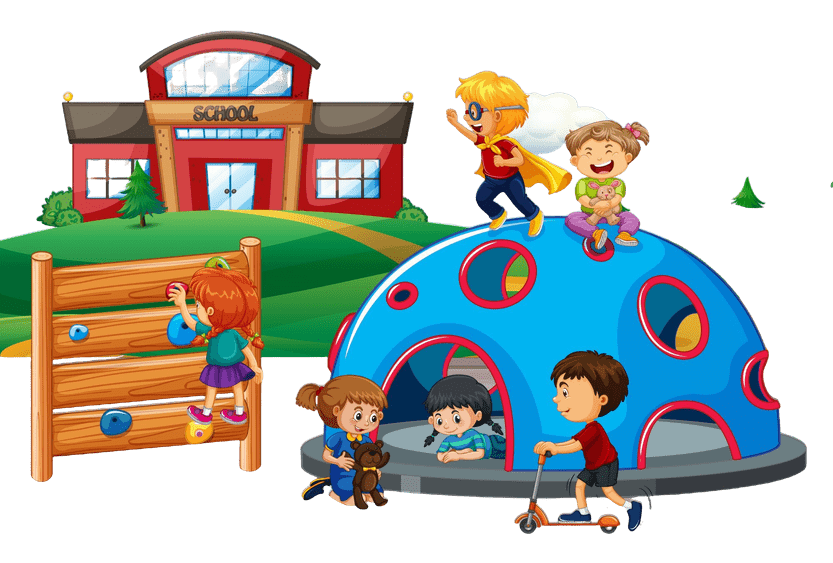



Nursery vs Kindergarten: Key Differences in Early Childhood Education

Explore the key differences between nursery and kindergarten. Learn how nursery vs kindergarten varies in age group, curriculum, and developmental focus. When it comes to early childhood education, parents often wonder about the difference between nursery vs kindergarten. Both play a vital role in a child’s developmental journey, but they serve different purposes and cater to different age groups. Understanding the distinctions between nursery and kindergarten can help parents make the best dec




1. Age Group
One of the most significant differences between nursery vs kindergarten is the age group they cater to.
Nursery: Typically, nursery programs are designed for children aged 2 to 4 years. Nursery is often the first structured learning environment that children experience outside of their homes.
Kindergarten: Kindergarten is generally for children aged 4 to 6 years. It serves as the bridge between preschool education (nursery) and formal schooling, preparing children for more structured learning environments.
Choosing the right environment depends on the child’s age and readiness for structured education. If your child is younger, nursery may be the best fit. If they are nearing school age, kindergarten could be the next step.
2. Curriculum Focus
The curriculum in nursery vs kindergarten also varies in terms of complexity and learning goals.
Nursery: The focus in nursery programs is on introducing children to basic concepts like colors, shapes, and numbers. The goal is to help children develop sensory skills, social interaction, and motor skills. The learning is often centered around play-based activities that are fun and interactive.
Kindergarten: In kindergarten, the curriculum becomes more structured, with a stronger emphasis on early literacy, basic math, and cognitive skills. Children are introduced to reading, writing, and problem-solving in a way that prepares them for formal schooling.
While nursery focuses more on developing social and motor skills, kindergarten is designed to prepare children for academic learning in primary school.
3. Structure of the Day
The daily routine in nursery vs kindergarten can be quite different.
Nursery: Nursery programs are generally more relaxed and flexible, with a significant portion of the day dedicated to free play, storytelling, singing, and simple group activities. The aim is to ease children into the idea of a structured environment while allowing them plenty of room for exploration.
Kindergarten: Kindergarten programs follow a more structured schedule, with designated times for activities like reading, math, creative arts, and physical education. Children in kindergarten spend more time in focused learning sessions, but there is still room for play, as it is essential for their development.
This difference in structure helps children gradually adapt to the expectations of formal schooling.
4. Developmental Goals
Another important distinction between nursery vs kindergarten is the developmental goals set for children.
Nursery: The primary developmental goals in nursery are to help children build social skills, develop emotional understanding, and enhance their physical coordination. Children are encouraged to interact with their peers, learn how to share, and follow simple instructions.
Kindergarten: In kindergarten, the developmental focus shifts more towards academic readiness. While social and emotional development is still important, kindergarten emphasizes cognitive growth, such as critical thinking, problem-solving, and language development.
Both stages are essential in a child's growth, but the approach to learning becomes more formalized as they transition from nursery to kindergarten.
5. Teacher-Child Interaction
The relationship between teachers and children also evolves between nursery vs kindergarten.
Nursery: In nursery, teachers play the role of caregivers as much as educators. They focus on making children feel safe and comfortable in a new environment. Teachers engage children through hands-on activities, helping them adjust to group settings while learning at their own pace.
Kindergarten: In kindergarten, teachers take on a more structured role, guiding children through lessons that lay the foundation for academic success. There is still a nurturing aspect, but teachers start focusing more on individual learning goals, helping children build concentration and discipline.
6. Social Skills Development
Both nursery and kindergarten emphasize the development of social skills, but they approach it differently.
Nursery: Nursery environments allow children to engage in unstructured play, which is vital for developing social skills such as sharing, taking turns, and cooperating with others. The social learning in nursery is often less formal and more organic.
Kindergarten: In kindergarten, social skills are reinforced through group activities like team projects, classroom discussions, and problem-solving tasks. Children begin to learn how to work together in a more structured setting, preparing them for group dynamics in primary school.
7. Learning Through Play
A key similarity between nursery vs kindergarten is the concept of learning through play, but the approach varies.
Nursery: In nursery, learning is almost entirely play-based. Activities such as building blocks, drawing, and pretend play are used to introduce children to basic concepts. This helps children associate learning with fun.
Kindergarten: While play remains an essential part of learning in kindergarten, the activities become slightly more goal-oriented. Games and play are designed to reinforce academic concepts like numbers, letters, and early math skills.
Both nursery and kindergarten use play as a tool to make learning enjoyable, but kindergarten introduces more academic-focused play activities.
Conclusion
When comparing nursery vs kindergarten, it's clear that both play crucial roles in a child's early education, but they serve different purposes. Nursery is designed for younger children to help them ease into structured environments through play and social interaction. It focuses on developing basic motor, social, and emotional skills. Kindergarten, on the other hand, prepares children for formal schooling by focusing on early academics, structured learning, and problem-solving.
Both nursery and kindergarten offer invaluable experiences that contribute to a child’s overall growth and development. Understanding the differences will help you make an informed decision about which stage is right for your child, ensuring they are on the path to success.
